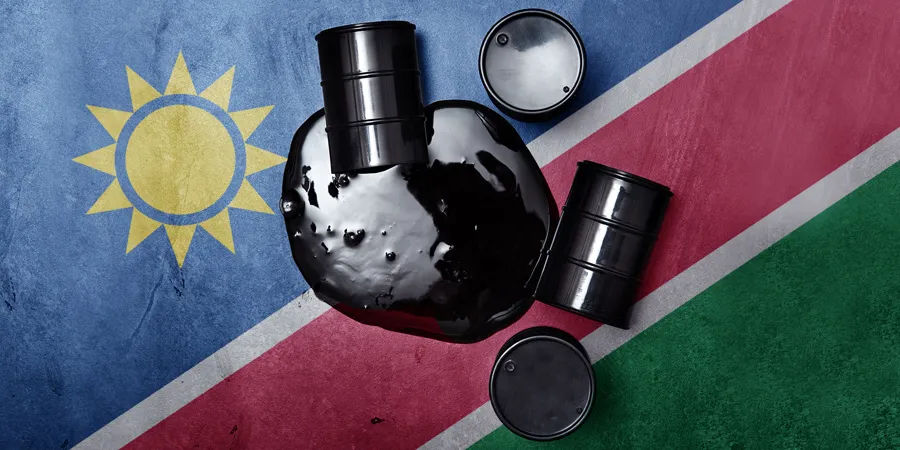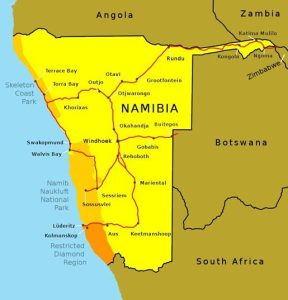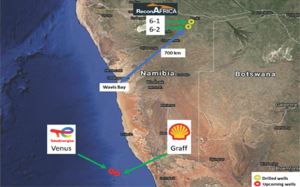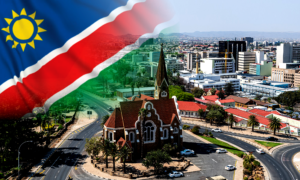Namibia’s Oil Dream Meets a Pause: Inside the Port Project Delays That Could Shape the Nation’s Future

In the small southern town of Lüderitz, waves crash against a modest harbor that has long served fishing trawlers, cargo ships, and the occasional tourist vessel. Now, this quiet port town has suddenly found itself at the center of Namibia’s grand ambition: to become a major oil-producing nation by 2030. But that dream has just hit a pause.

The Namibian Ports Authority (Namport) recently announced the postponement of its plans to expand and modernize Lüderitz harbor—a crucial piece of infrastructure that would enable the country’s nascent oil and gas industry to thrive. The reason? A lack of clarity about the project’s scope and growing concerns from stakeholders over how the facility should serve both industry and community needs.
A national vision in grasp. Namibia has captured global attention since discoveries in 2022 revealed offshore reserves that could hold up to 2.6 billion barrels of oil. For a country of just 2.6 million people, these resources have been described as a “game changer,” with the potential to catapult Namibia into the ranks of Africa’s top energy producers. Multinationals such as TotalEnergies and Shell have been pouring investment into exploratory drilling, their ships stationed along the country’s coastline, drawing in oil executives and engineers from across the globe.
The vision is bold: oil revenues that could transform Namibia’s economy, fund infrastructure, reduce unemployment, and strengthen social programs. But the recent harbor delay is a reminder of the fragile balance between aspiration and execution.
Literally, the business stakes are high for oil companies. Lüderitz is not just another port, it is the logistical lifeline for servicing rigs, transporting equipment, and housing supply bases. Without a modernized harbor, the ability to scale exploration and production remains constrained.

Namport had already begun soliciting proposals for an oil and gas supply facility but soon faced pushback. Some industry players raised concerns about whether the port’s current design could handle the scale of operations required. Others questioned environmental risks, local content policies, and how community interests would be safeguarded in the process.
“The oil is there. The companies are ready. But the infrastructure isn’t,” one industry analyst told me. “If Namibia can’t build this backbone, the 2030 timeline could slip further away.”
The harbor delay comes at a delicate political moment. With elections on the horizon, Namibia’s leaders are navigating between promising transformative oil wealth and managing the growing skepticism that such promises bring. Critics warn that without transparency, Namibia could repeat the “resource curse” stories of other African nations where oil wealth deepened inequality rather than alleviating it.
Government officials insist they are committed to doing things differently. They argue that delaying the Lüderitz upgrade shows caution, not incompetence—an effort to ensure that when construction begins, it meets both industry standards and national interests.
Still, the pause feeds into a broader political debate: Who will truly benefit from Namibia’s oil? Foreign multinationals, urban elites, or the everyday Namibian struggling with unemployment and rising costs of living?
In Lüderitz itself, the harbor expansion carries both hope and unease. Local residents dream of jobs and better infrastructure. Hotels and restaurants envision a surge of business from oil workers. Yet, fishermen worry about losing access to the sea, and conservationists point to the fragile marine ecosystems that sustain the town’s identity and economy.
“The oil money could change our lives,” says Maria, who runs a small guesthouse in town. “But we also don’t want to wake up one day and see the sea polluted, or our community priced out by outsiders.”
Her sentiment captures the double-edged sword of oil wealth and opportunity intertwined with risk.
Despite the delay, Namibia’s oil story is far from over. TotalEnergies and Shell continue their offshore exploration, with plans for more drilling in 2025. Industry experts predict that once Namibia finalizes its infrastructure strategy, the investments will flow rapidly.
For now, Lüderitz harbor sits as both a symbol and a test case. Its expansion, or lack of expansion thereof, will shape whether Namibia can turn offshore discoveries into a real economy-transforming industry.
The dream of becoming an oil-producing nation by 2030 is still alive, but the recent pause reminds Namibia of an old truth: oil may be found in the ground, but prosperity is built onshore, in the messy and often slow work of planning, politics, and people.








